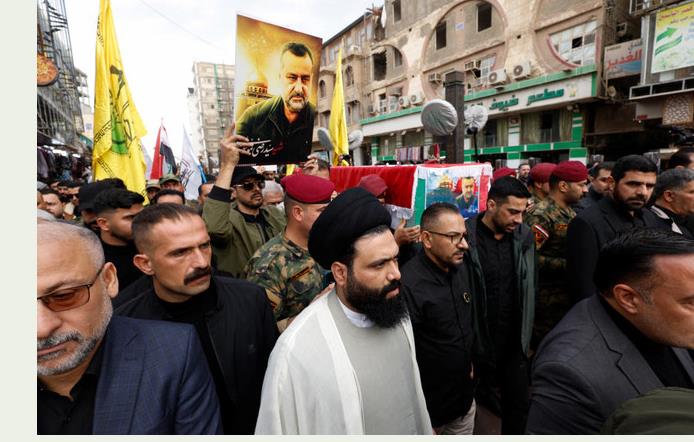
Senior Adviser to Iranian Supreme Leader Ali Akbar Velayati said on Saturday in Baghdad that the Tehran-led regional force will not allow for US bases to settle east of the Euphrates.
On the sidelines of his meeting with Iraqi Vice President Nouri al-Maliki, Velayati said that the ‘axis of resistance’ (referring to paramilitary militias spread across the region and supported directly by Iran) would not allow NATO to establish regional bases. He called on these forces to prevent "gradual stabilization" of American forces in eastern Euphrates.
According to Revolutionary Guards news agency Tasnim, Velayati discussed with Maliki upcoming elections and the role of political parties and forces, in addition to future strategies for forces Iran backs in the region. Velayati official relayed Iran’s opposition to the "return" of US forces to Iraq.
On the other hand, Revolutionary Guard Major General Yahya Rahim Safavi was cited as demanding that Iran recover the price it had paid on Syria battlefields.
Safavi stressed, during a conference on the latest political and field developments in the Syrian crisis, that Iraq and Syria have played the role of arenas for US-Russian geostrategic conflict.
He also reviewed previous positions on a geopolitical stage in the West Asia region, amid intense competition between America, Russia and the European Union.
Safavi considered that his country is engaged in regional geopolitical, geostrategic and geoeconomic competition with Saudi Arabia and Turkey in Iraq and Syria.
However, Syria and Iraq are also the geopolitical, geostrategic, geographical and economic rivals of regional powers such as Iran, Turkey and Saudi Arabia.
We have two races being run in these countries, a global competition and a regional competition.
“Iran must recover the costs it paid in Syria," Safavi said, adding that the Syrians were "ready to pay for oil, gas and phosphate minerals.”
Safavi said the Russians had signed a 49-year contract with Syria, adding that Moscow had "acquired military bases as well as political and economic privileges."
He defended the world-claimed terrorist group Hezbollahs role in the Syrian war, saying it had "transformed its level from militias to a strong army against Israel."
Safavi also warned against the establishment of a US-backed Kurdish autonomous region, adding that the establishment of a Kurdish region in the east of the Euphrates faced opposition from Iran, Turkey, Iraq and Syria.
Safavi estimated the size of reconstruction in Syria to cost somewhere between 300 and 400 billion dollars, while implicitly defending the Turkish operation in Syria’s Afrin.
On the same page, Deputy Minister of Foreign Affairs for Arab and African Affairs Hossein Amir-Abdollahian defended Iran’s decision to intervene in Syria, labeling it as ‘the best decision possible’ in defending its national security.
In a lengthy dialogue with the Mehr government agency, Abdollahian defended Tehrans regional role, adding that Tehrans role comes in line with a foreign policy to stand up to "regional and international crises and issues related to Iranian national security."
"We have used our moral and political influence in some of the crises in the region, and in some other crises that have witnessed terrorist wars in Syria and Iraq, we have intervened by sending military advisers from our armed forces and volunteers," Abdollahian said.
Abdollahian criticized the internal opposition to Tehrans regional interference and described its role as "an achievement for national security."
"The price we paid, whether material or humanitarian, put our national security’s best interest first and foremost, and those who do not believe we should not have paid a price in the region must reconsider linking global issues together," Abdollahian said.










